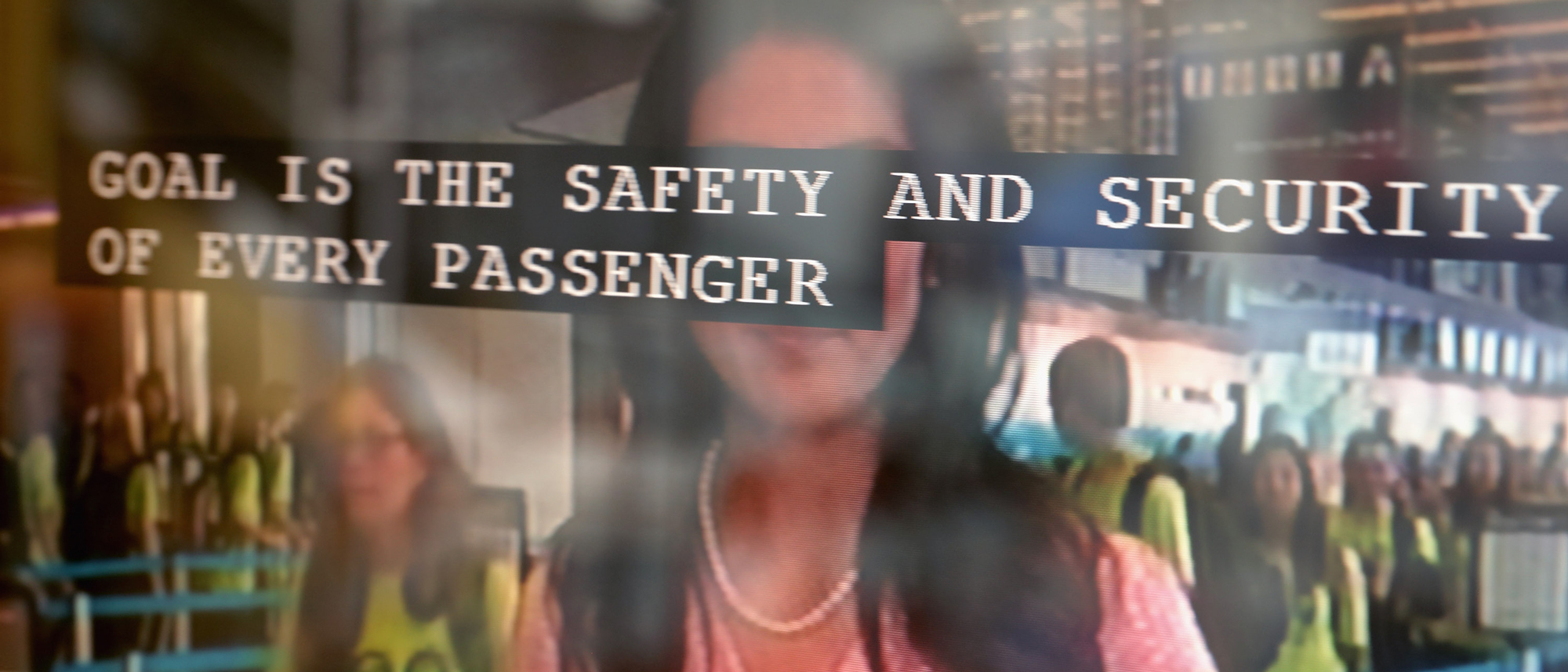Laptop Mag Verdict
SimonSays takes the effort out of transcription and translation of your video, and provides collaboration tools for your team, reducing the time taken to create subtitles from hours to minutes.
Pros
- +
Supports 100+ languages
- +
Strong software compatibility
- +
Easy editing and annotation of subtitles
- +
Secure machine transcription
- +
MacOS and iOS apps
Cons
- -
Occasional mistakes with thick accents
- -
No Windows or Linux apps, only browser-based
- -
Limited file size via website upload
Why you can trust Laptop Mag
With the pace of all-things internet accelerating unabated, the demand for video content continues to increase. At this point in the development of our interconnected world, we are seeing video become the standard for visual content in our browsers. The rapid advancement of digital camera and editing technology means smartphones like the iPhone 12 Pro or the Samsung Galaxy S21 can compete for image quality against DSLRs and 4K and 6K video cameras from the likes of Blackmagic.
Software developers like Apple and Adobe now offer mobile video editing solutions for iOS and Android with direct integration into social network workflows. The creation of high-quality videos is now within reach of the budgets of everyday consumers.
With streaming services like Netflix using the Blackmagic 6K Pro as a prime camera, and social media websites embracing video as the future for content — enabled by wider high-speed internet availability — there are fewer reasons not to dive in and begin exploring what it means to be a filmmaker.
The speed of development doesn’t mean we have to leave those who have hearing impairments behind. It used to be that creating closed captions was a lengthy task, not suited to today’s fast production turnarounds. This might lead one to worry about taking on a project with multiple languages. But captioning and subtitling has also kept pace with the development of video, thanks in large part to organizations like SimonSays. With the latest transcription software, you can create closed captions (CC), SDH subtitles (Subtitles for the Deaf and Hard of Hearing), or language translation subtitles easily and in modern production timeframes.
I dove into the SimonSays transcription and subtitles services for a few weeks and cut videos of our very own Mark Anthony Ramirez for Laptop Mag. I also spoke with SimonSays CEO Shamir Allibhai to learn more.
SimonSays.ai price and availability
SimonSays offers three tiers of service: Pay As You Go, Starter and Pro. For the Starter and Pro packages, you can subscribe on a monthly basis or, for a discount, on a yearly basis.
| Row 0 - Cell 0 | Monthly vs. Annual Price | Max. import file size via website | Max. import file size via macOS app/ software extensions |
| Pay As You Go | $0 ($15/hr of footage) | 5GB | No limit |
| Starter | $20/mo Or $180/yr (save 25%) | 5GB | No limit |
| Pro | $35/mo Or $300/yr (save 29%) | 20GB | No limit |
SimonSays works with dozens of footage formats, including all the usual suspects such as h.264, h.265, .mp4, .mov, .wav, .mp3. I learned quickly that it was a better idea to upload audio files rather than video files to save time uploading, but I found the service to be equally effective with whichever approach I tried.
SimonSays.ai who made it, and who is it for?
The SimonSays website states how the team behind this product come from a filmmaking background. In 2015, Shamir Allibhai left his career as a documentary filmmaker in the Middle East, with projects in Qatar and Afghanistan, to begin a new venture in California that aimed to bring computing solutions to the meticulous and sometimes infuriating task of subtitling.
'We really want to solve problems for video professionals" - Shamir Allibhai, CEO SimonSays
As someone who had worked across many Middle Eastern languages and dialects, and with a long list of friends in the industry with whom he could consult, Shamir was well placed. His team began by developing and training an in-house AI that could triple task recognizing language, speaker identity, and crucially, auto punctuation.
However, a small startup in 2015 was never going to be able to compete with the likes of Google and Amazon in terms of AI computing. At this point, Shamir said, they had “no skin in the AI game” and simply outsourced those tasks to the best performers in the market. He said their customers were looking to them to fit into the workflow; recognizing this early on meant they could keep their focus on how to solve problems for video professionals. After using SimonSays, it is clear to me that the goal was achieved.
SimonSays.ai design and workflow
To get started, you can either set up an account with SimonSays or create a login using your Apple, Facebook, Google or LinkedIn profiles. Once logged in, you are faced with a homepage that displays all your recent projects alongside demonstration modules. You can sort through these with options on the left side of the main window.
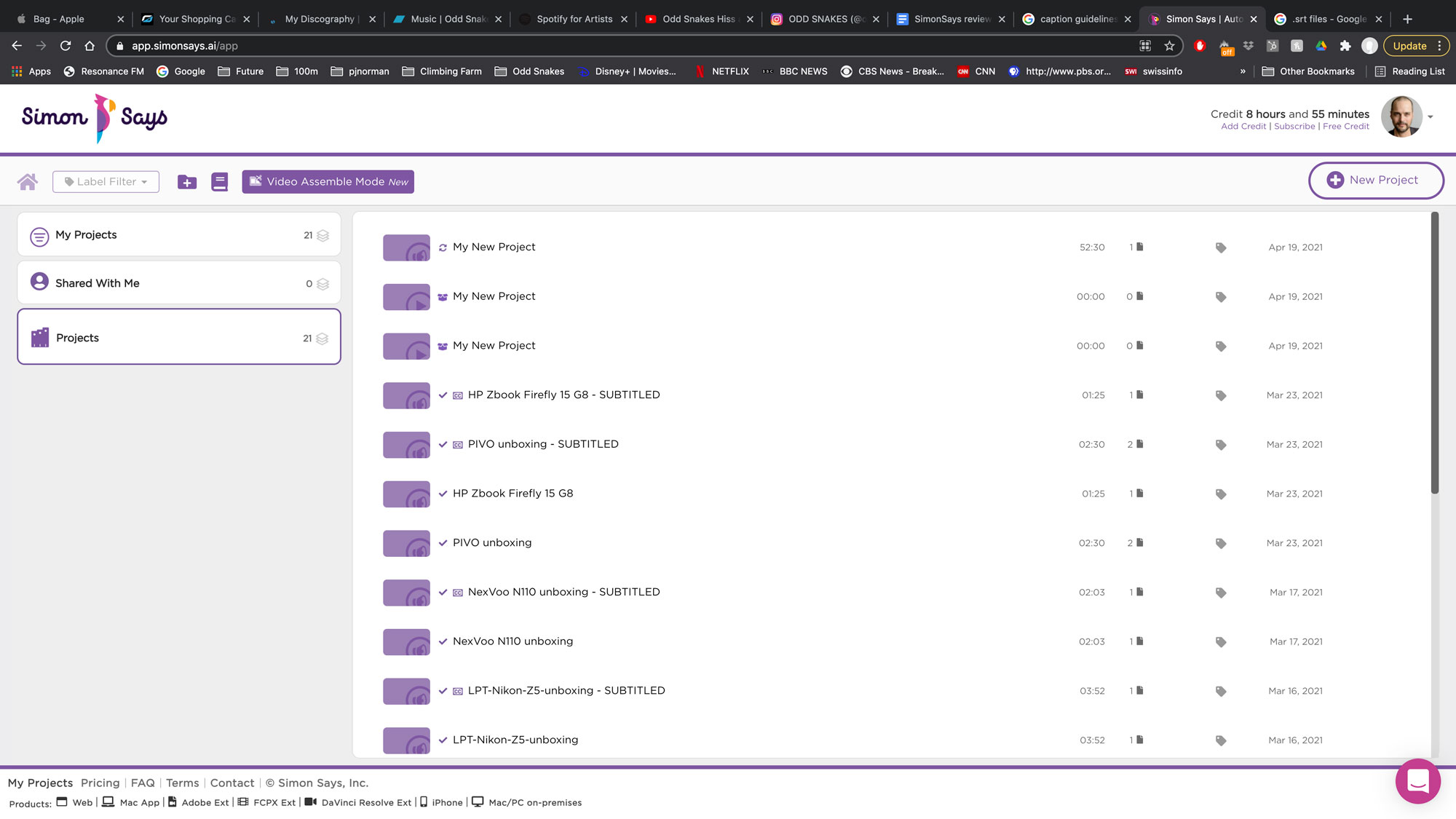
Although the demo modules are comprehensive and clear, I didn’t spend much time with them. After clicking the “New Project” button, the next page invites you to upload your audio or video file.
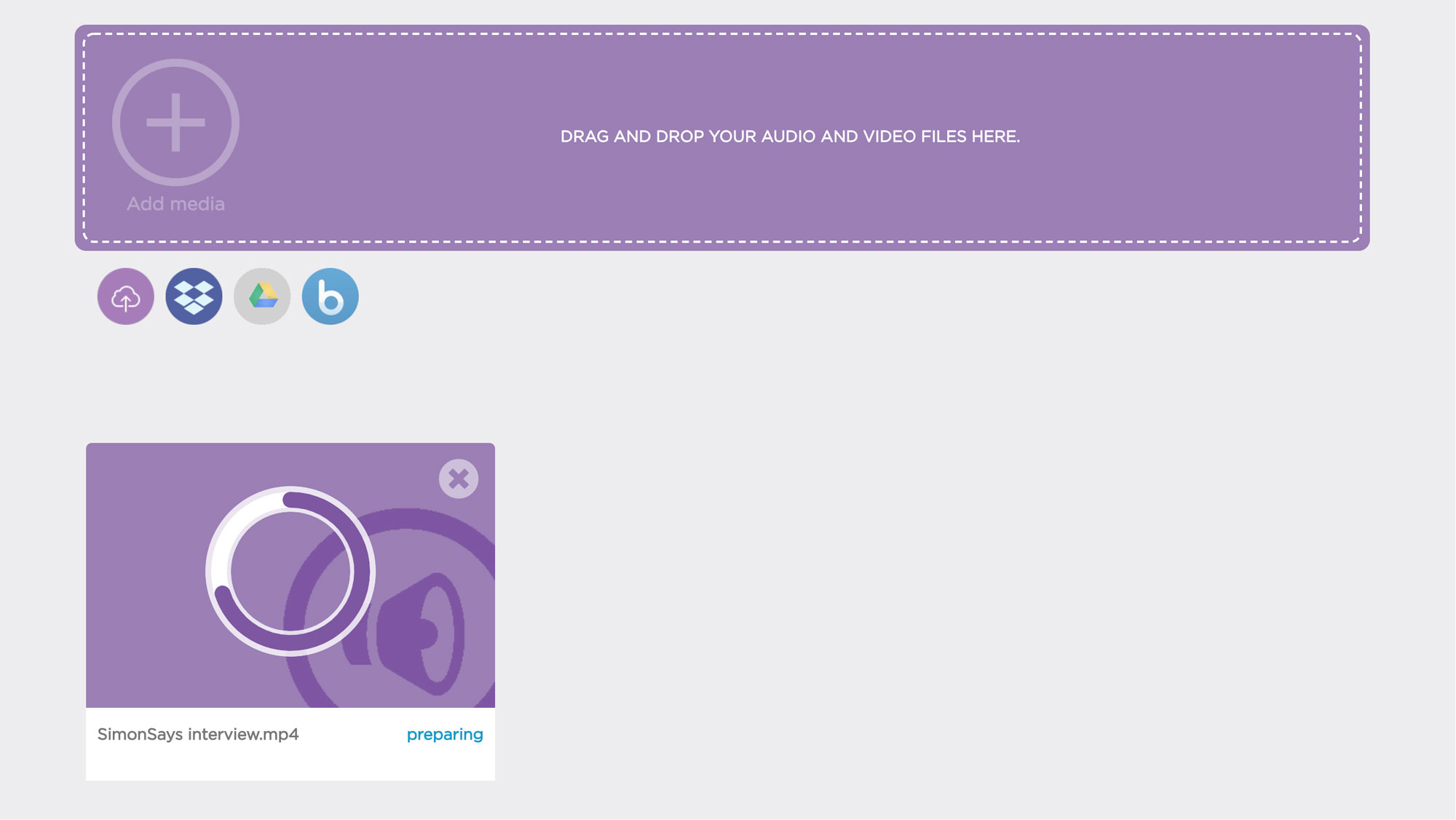
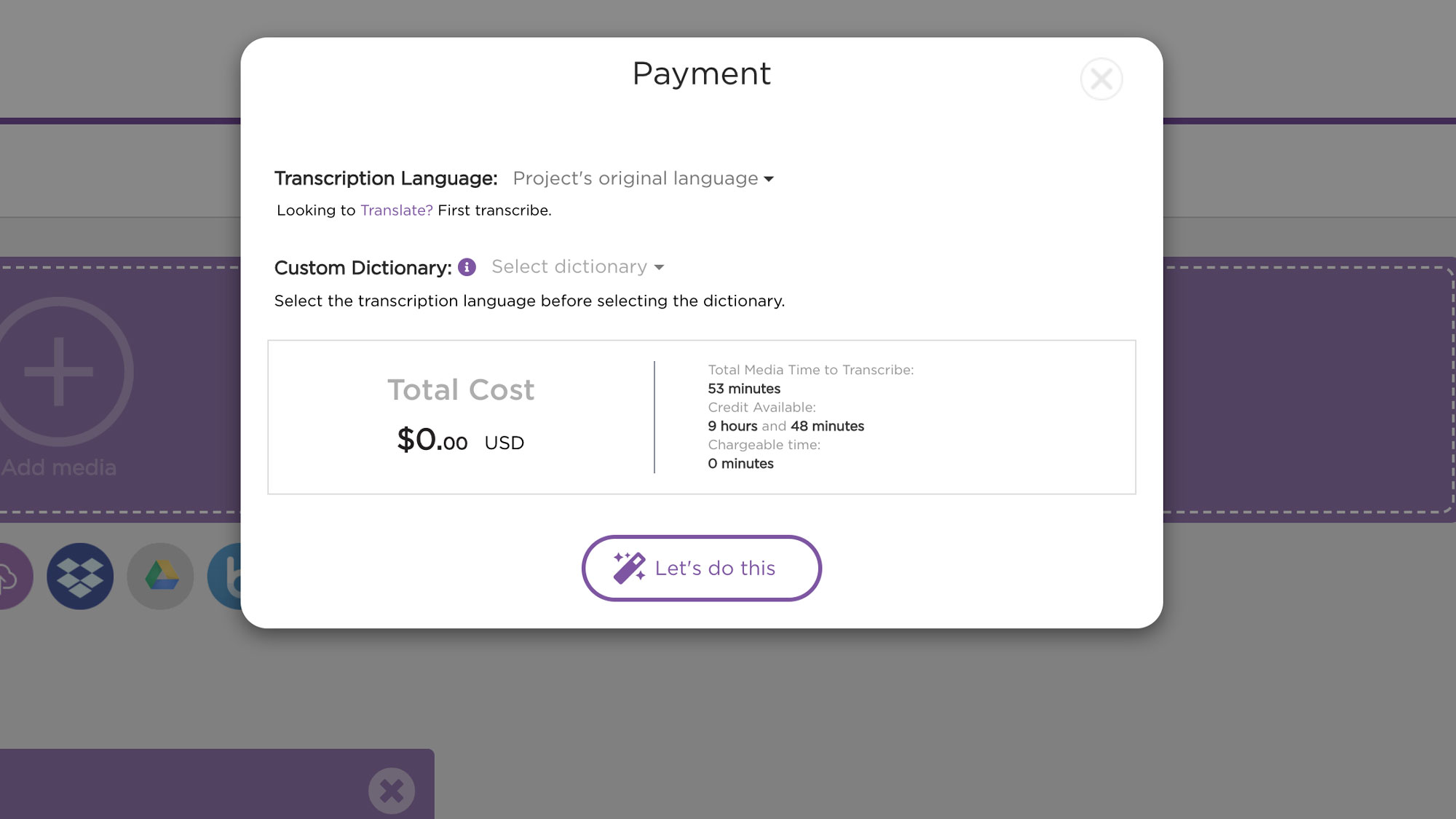
Once uploaded, the system will quiz you on the native language for the audio, and prompt you for payment, which you can do per project or via a subscription.
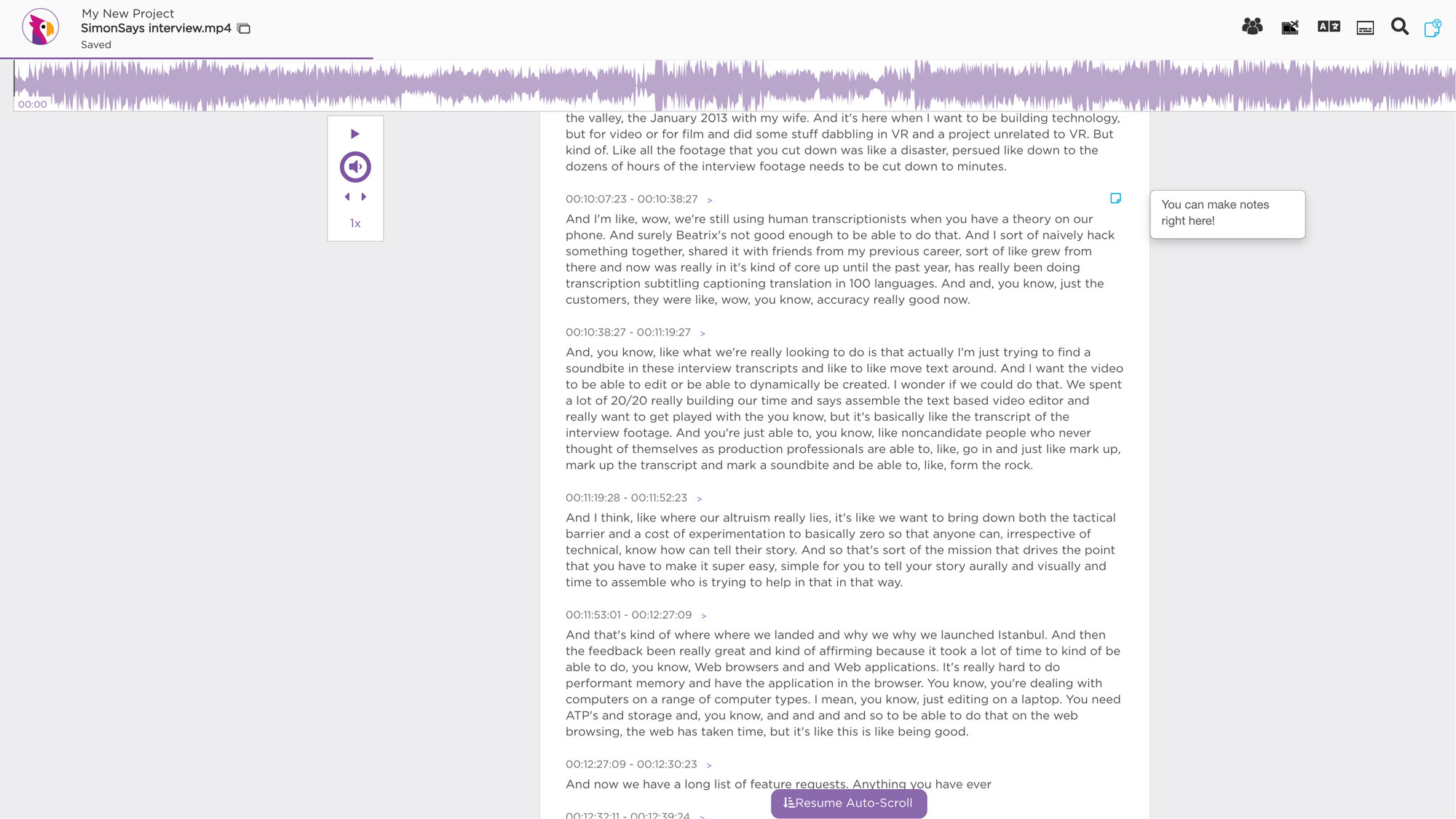
At this point, the job is practically done. After a few minutes, SimonSays spits out a full transcription of your file and you can edit it right there in the browser on a page that you can share with other team members. Anyone with permission can comment and edit in a team sharing setting similar to Google Docs.

From here, if you want to refine the layout of your subtitles before export, you can use the “Visual Subtitle Editor,” which is essentially an extension of the native browser-based text editor.
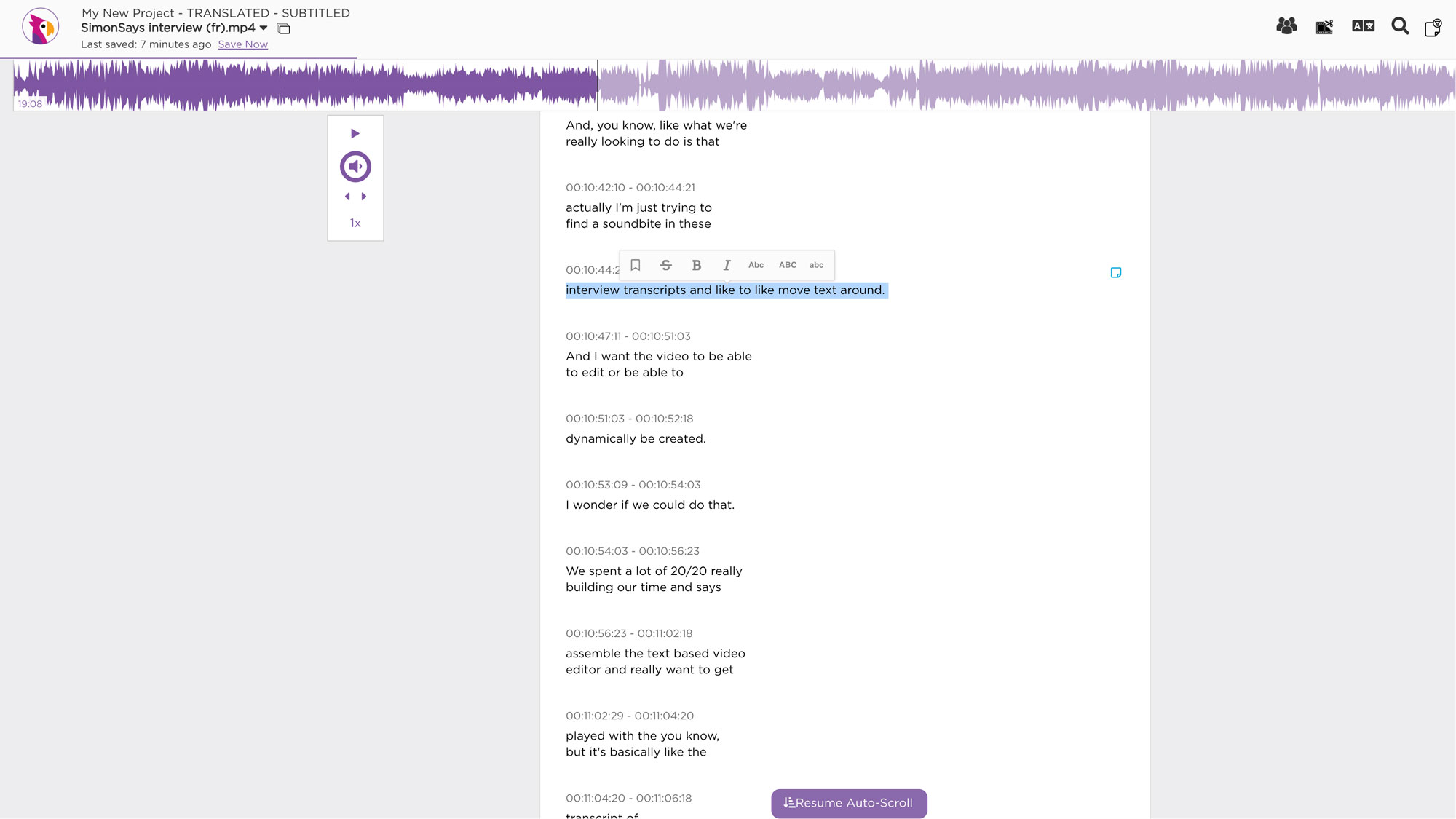
This takes a good guess at laying out your transcription in lines that make sense within the parameters you set. Then you are ready to export, unless you want to translate the text into a different language.
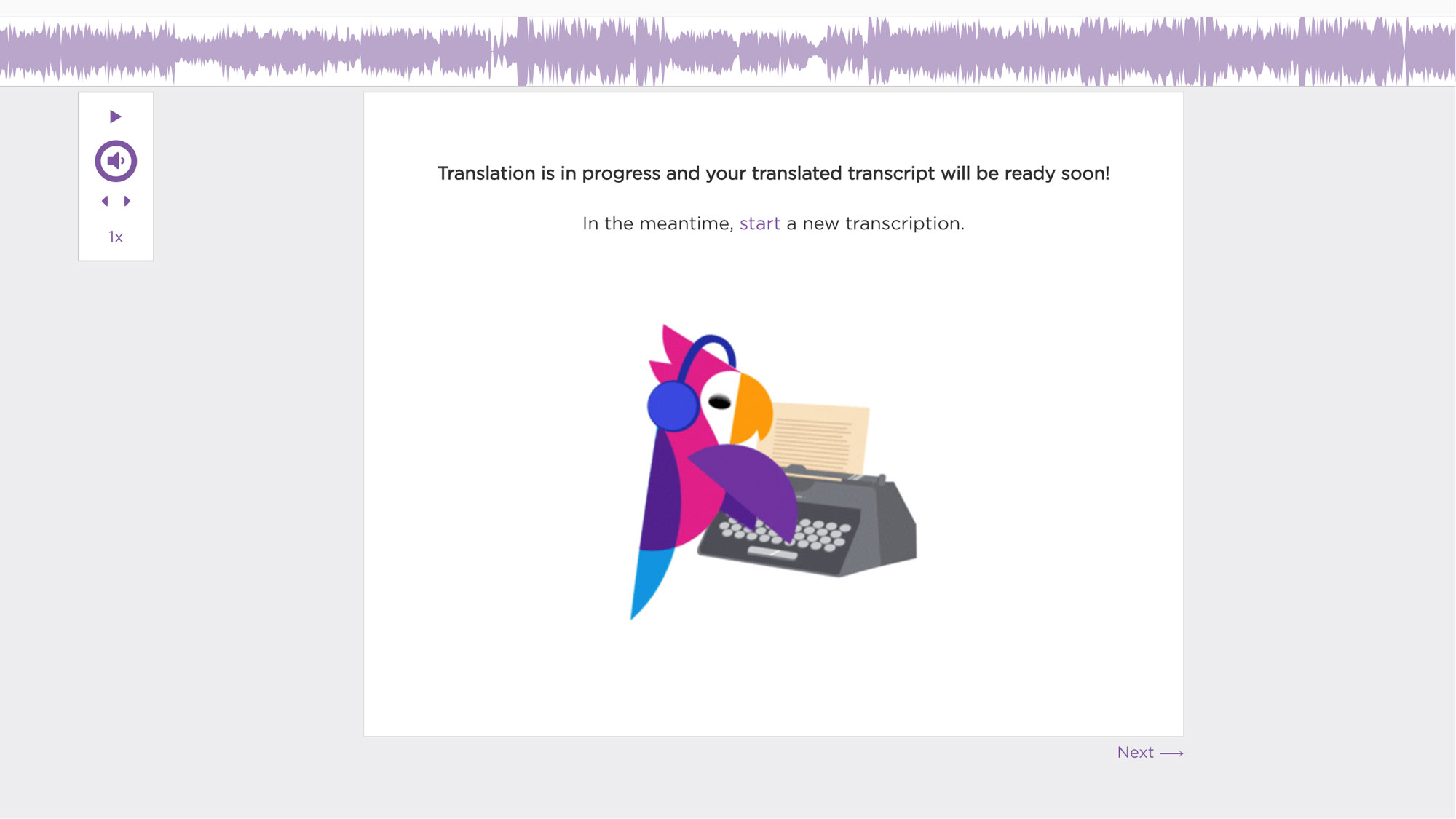
SimonSays offers translation services in 100+ languages, including many dialects, at the click of a button. I can’t speak to how effective their translation of English into Kenyan Swahili might be, but I speak a little French and the translation they returned certainly looked like French.
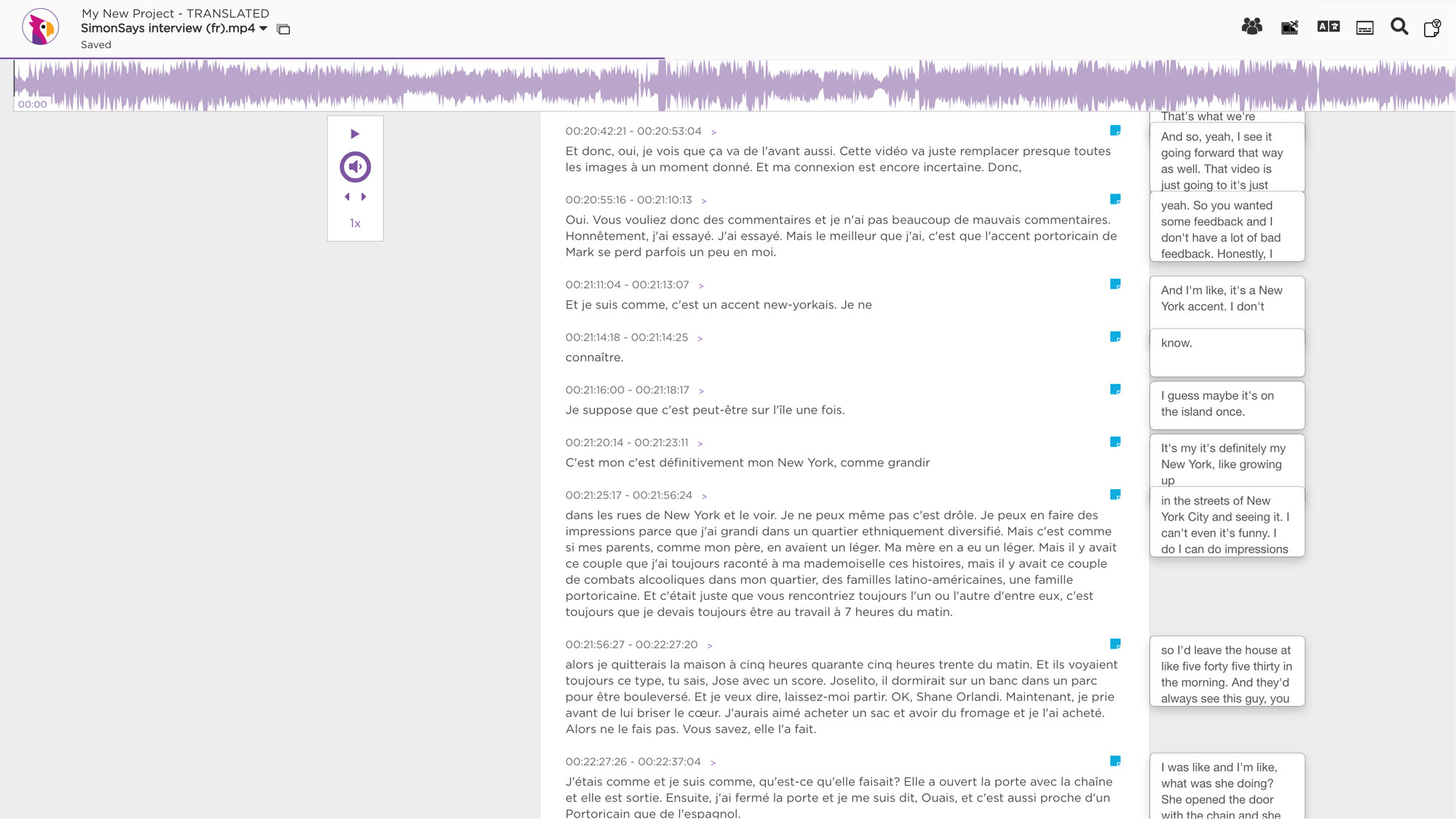
Whether it’s a translation or the original transcription, exporting the subtitles for editing software is a cinch. The software offers export options for Word, Premiere Pro, Final Cut X, Adobe Audition, AVID as well as standard Closed Caption and Subtitle formats.
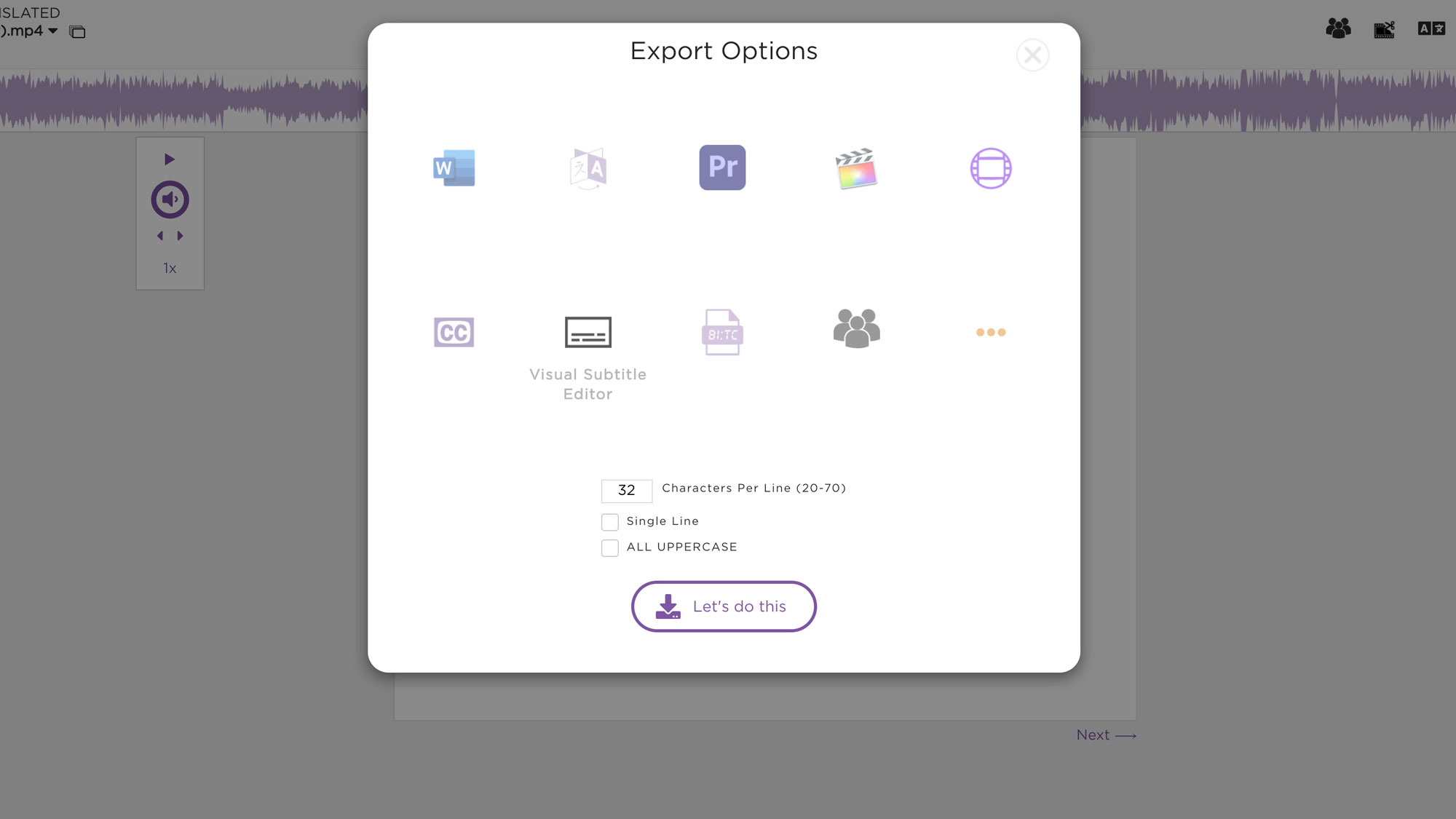
I exported a .srt file, dropped it into Premiere Pro, and as they say in England, “Bob’s your uncle.” The subtitles sat almost immaculately over the footage, leaving me to wonder how many mouse clicks I had just saved.
SimonSays.ai bottom line
SimonSays slots into the video production workflow seamlessly to provide accurate captioning and subtitling, taking care of much of the labor in transcription and translation. For longer projects requiring multiple translators, client feedback and other advanced features, it allows for faster team communication within the same document as the transcription, meaning an editor can implement feedback in almost real time.
I haven’t yet tested the newly announced extension for Premiere Pro but in the limited way I’ve been using it, SimonSays is a good solution for the challenges professionals face in this field. I would encounter one or two mis-interpretations per minute which, considering the authenticity of Mark Anthony Ramirez’s New York accent, is pretty impressive. Any errors are easily corrected either in the SimonSays web editor or after importing the subtitle file into editing software.
In some cases, SimonSays reduces the transcribing procedure from days down to hours, meaning accurate captioning is unlikely to become a casualty of the accelerating turnaround of video production. The development of SimonSays alongside software like Premiere Pro means subtitles in almost any language can be an easy and helpful addition to your project.
Peter (PJ) Norman has worked in the photography, film, and music fields since graduating with a Music Science degree in London in 2000. He moved to New York in 2009 to be a freelance producer and creative and has been based in the city ever since. His film work has been accepted to multiple International film festivals including Sundance and Locarno, and his passion for music has led to contributions on more than 10 full-length albums. Peter will occasionally test and write about things that inspire him for Laptop Mag when he isn't helping on the multimedia side of things. He is happiest when lost in the play of light and sound with his Nikon FM2 and a roll of black-and-white film.
